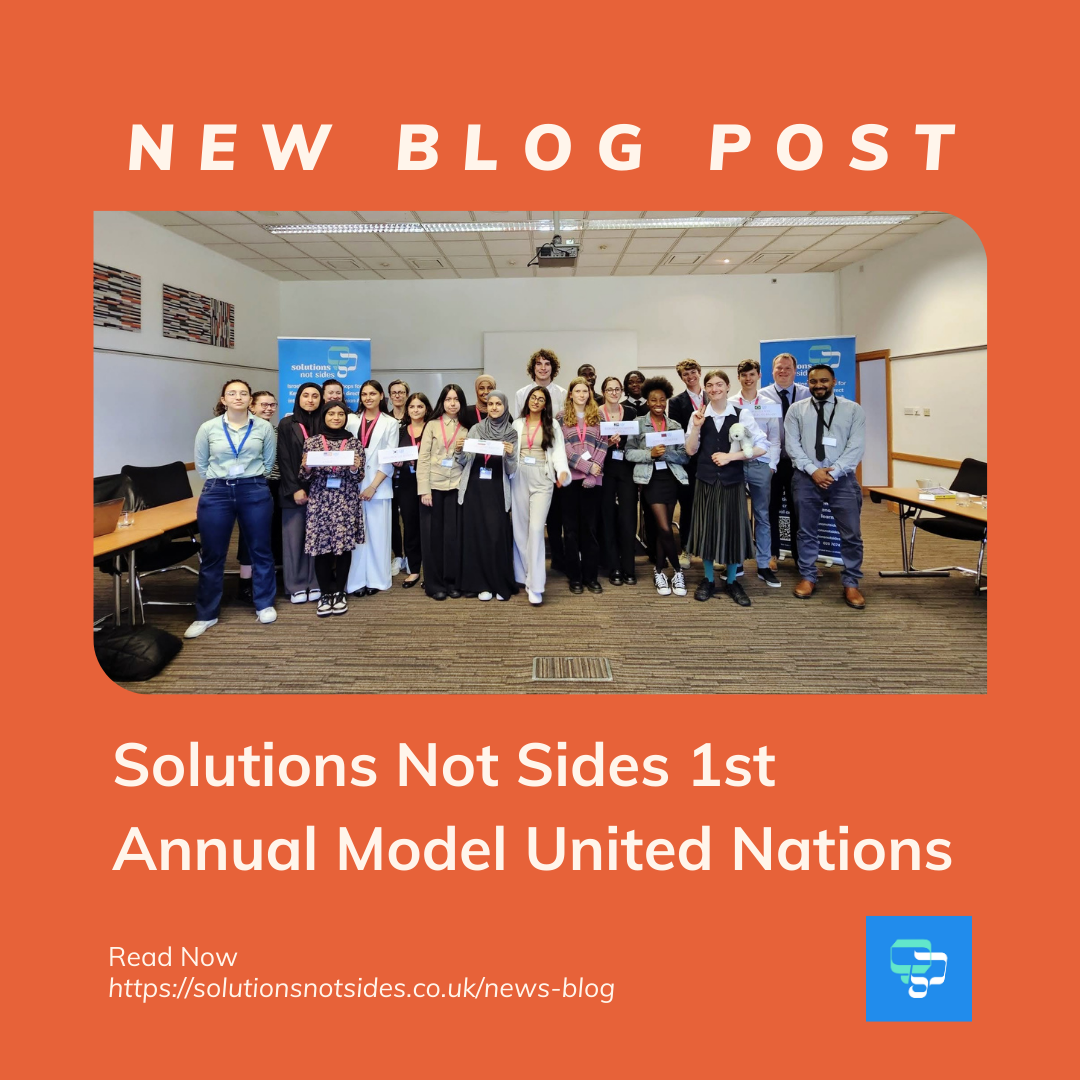
By Ms Macpherson, Teacher at London school in Stratford
Solutions Not Sides’ (SNS) events have become an annual part of our school experience in recent years at London Academy of Excellence (LAE), and so we were keen to be part of the SNS inaugural Model United Nations (MUN), and pleased that so many of our students leapt at the opportunity to take part in a conference on a UN path forward for Israel and Palestine.
Assigned as Iran and South Korea, our student teams researched their states and their wildly differing perspectives on the conflict. The first step in advance of the conference was to draft position papers, laying out an initial approach, which with support from online preparatory sessions, introduced students to the format and language of the MUN.
Upon arrival in early July at the Lancaster University conference centre, students were brought together with teams from other schools and entered straight into the MUN process. Our excellent Chair guided us through the motions, so that 'caucus', 'mod' and 'unmod' soon became familiar terms. Even after an intense introduction, discussion continued into the dining room, and it would for the next two days. As the second session opened, we saw the start of alliance building, with new configurations emerging over the day.
For school students, the benefits of this experience were profound: MUN can seem intimidating but in this format it shows it doesn’t have to be. Students were challenged to address a contentious subject matter, its reality underscored by several live sessions with peace activists from Palestine and Israel that brought the lack of progress on peace into sharp focus. Students had to set aside their existing viewpoints, and enter into the international community and the language and protocols of the United Nations. It called on oracy, team-work, research skills and powers of negotiation, the so called ‘soft skills’ that we could see are needed in any diplomatic forum and all workplaces. With the bar set high by early motions from eloquent Qatari and Iranian delegates, it was impressive to see others quickly grow in confidence. The fantastic Year 10 USA delegation show that even the youngest participants can visibly develop such skills in a short time. Students had to see the world from different national perspectives – for South Korea and South Africa delegates this meant reflection on how their nations’ histories and positions today in the international community shape their approach to the Israel-Palestine conflict. Outstanding Brazilian diplomacy emerged as the link between all others, showing how in MUN, as well as in real life international relations, skilful leadership can be a game changer.
What struck all teachers present was the wider benefits for our students: MUN took them out of the school environment and into a situation that was new in many ways. For my London group to find themselves in rural Lancashire and to make easy friendships with students from schools in the North of England was a social experience that had a mutually positive impact. With an excellent hotel and three course meals, the whole experience had the feel of a professional conference event.
Model United Nations teaches young people about the complexity of international relations, underlining how important it is in our polarised times for students to seek more than simplistic narratives, and empower them to find common paths towards resolution. The event embodied the SNS values of dialogue over conflict resolution, the use of critical thinking in an open and safe space, and equipping young people with the skills to approach a highly complex situation and diverse narratives. We are indebted to an experienced Chair for inducting us all in the MUN process. The support from Tasha and Ali at Solutions not Sides was invaluable at every stage – may this be the first of many SNS MUNs to follow!